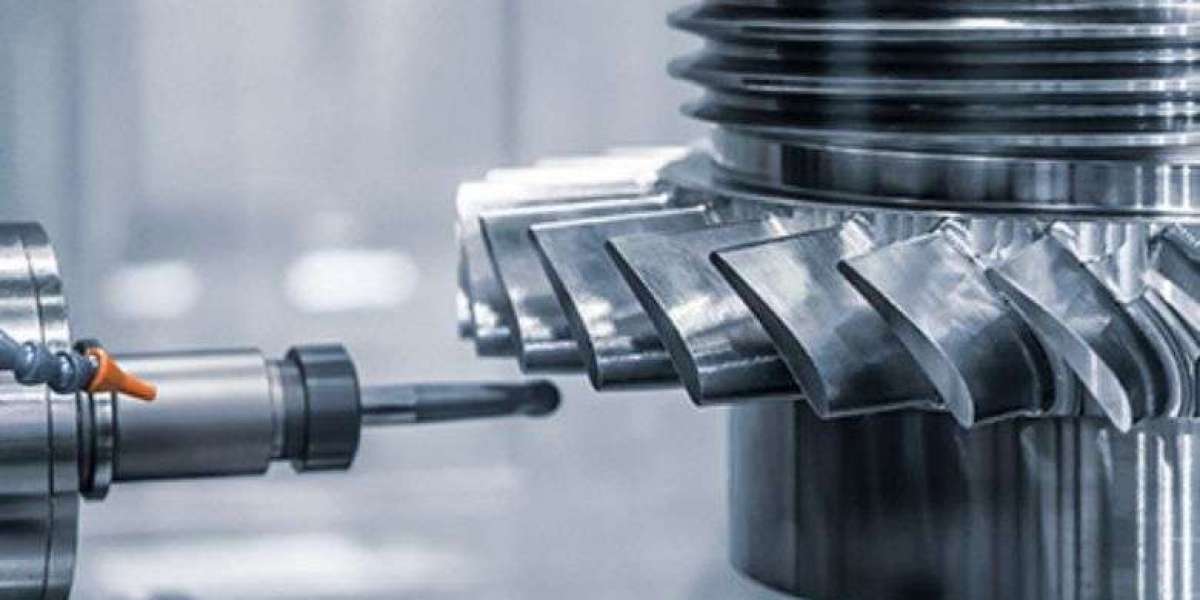In the world of manufacturing, precision is paramount. When it comes to creating components with intricate details, tight tolerances, and superior surface finishes, machining service play a vital role. This guide delves into the world of machining services, exploring the diverse range of capabilities, the advanced technologies employed, and the critical role they play in bringing innovative products to life.
A Spectrum of Capabilities:
Machining services encompass a wide array of processes, each tailored to specific needs and materials. Some of the most common machining services include:
- Turning: Using a lathe to remove material from a rotating workpiece, creating cylindrical shapes, threads, and other features.
- Milling: Employing a rotating cutter to remove material from a workpiece, creating flat surfaces, grooves, slots, and complex shapes.
- Drilling: Creating holes in workpieces using a rotating drill bit.
- Grinding: Using an abrasive wheel to remove material and achieve a smooth surface finish, improving dimensional accuracy and enhancing wear resistance.
- Boring: Enlarging existing holes to precise dimensions.
- Reaming: Finishing holes to precise diameters and creating smooth, accurate surfaces.
- Tapping: Creating internal threads in workpieces.
Advanced Technologies for Precision:
Machining services leverage advanced technologies to achieve exceptional precision and efficiency:
- Computer Numerical Control (CNC): CNC machines are programmed to perform complex machining operations with high accuracy and repeatability, minimizing human error and maximizing efficiency.
- Computer-Aided Design (CAD): CAD software allows for the creation of detailed 3D models of parts, ensuring accurate design and facilitating the programming of CNC machines.
- Computer-Aided Manufacturing (CAM): CAM software translates CAD designs into machine instructions, optimizing toolpaths and minimizing machining time.
- Laser Cutting: Utilizing high-powered lasers to cut materials with exceptional precision and minimal heat distortion, ideal for intricate designs and delicate materials.
- Waterjet Cutting: Utilizing a high-pressure jet of water mixed with abrasive material to cut materials with high precision and minimal heat distortion, suitable for a wide range of materials.
The Benefits of Outsourcing Machining:
Many manufacturers opt to outsource their machining needs due to several advantages:
- Specialized Expertise: Machining service providers possess specialized expertise and advanced equipment, allowing them to handle complex projects with precision and efficiency.
- Cost-Effectiveness: Outsourcing can be cost-effective, especially for smaller manufacturers who may not have the capital investment or space for in-house machining capabilities.
- Flexibility and Scalability: Machining service providers offer flexibility and scalability, allowing manufacturers to adjust their production needs as required.
- Faster Turnaround Times: Outsourcing can often lead to faster turnaround times, as machining service providers have dedicated resources and expertise.
The Importance of Partnering with the Right Provider:
Choosing the right machining service provider is crucial for success. Consider factors such as:
- Expertise and Capabilities: Ensure the provider has the expertise and capabilities to handle your specific machining needs.
- Equipment and Technology: Inquire about the provider's equipment and technology to ensure they can meet your precision and quality requirements.
- Quality Control: Verify the provider's quality control processes to ensure consistent and reliable results.
- Communication and Collaboration: Choose a provider who communicates effectively and collaborates closely to ensure project success.
In conclusion, machining services play a critical role in modern manufacturing, enabling the creation of precision components that drive innovation across industries. By partnering with the right machining service provider, manufacturers can access specialized expertise, advanced technologies, and efficient solutions, ensuring the production of high-quality, reliable products.








